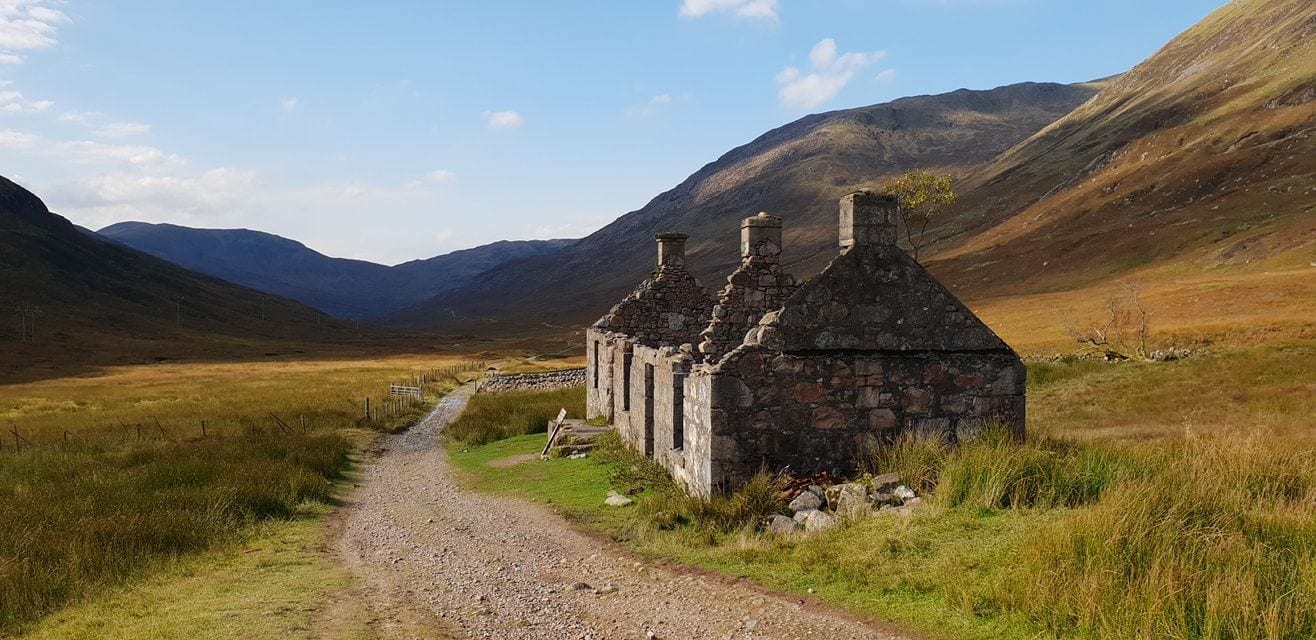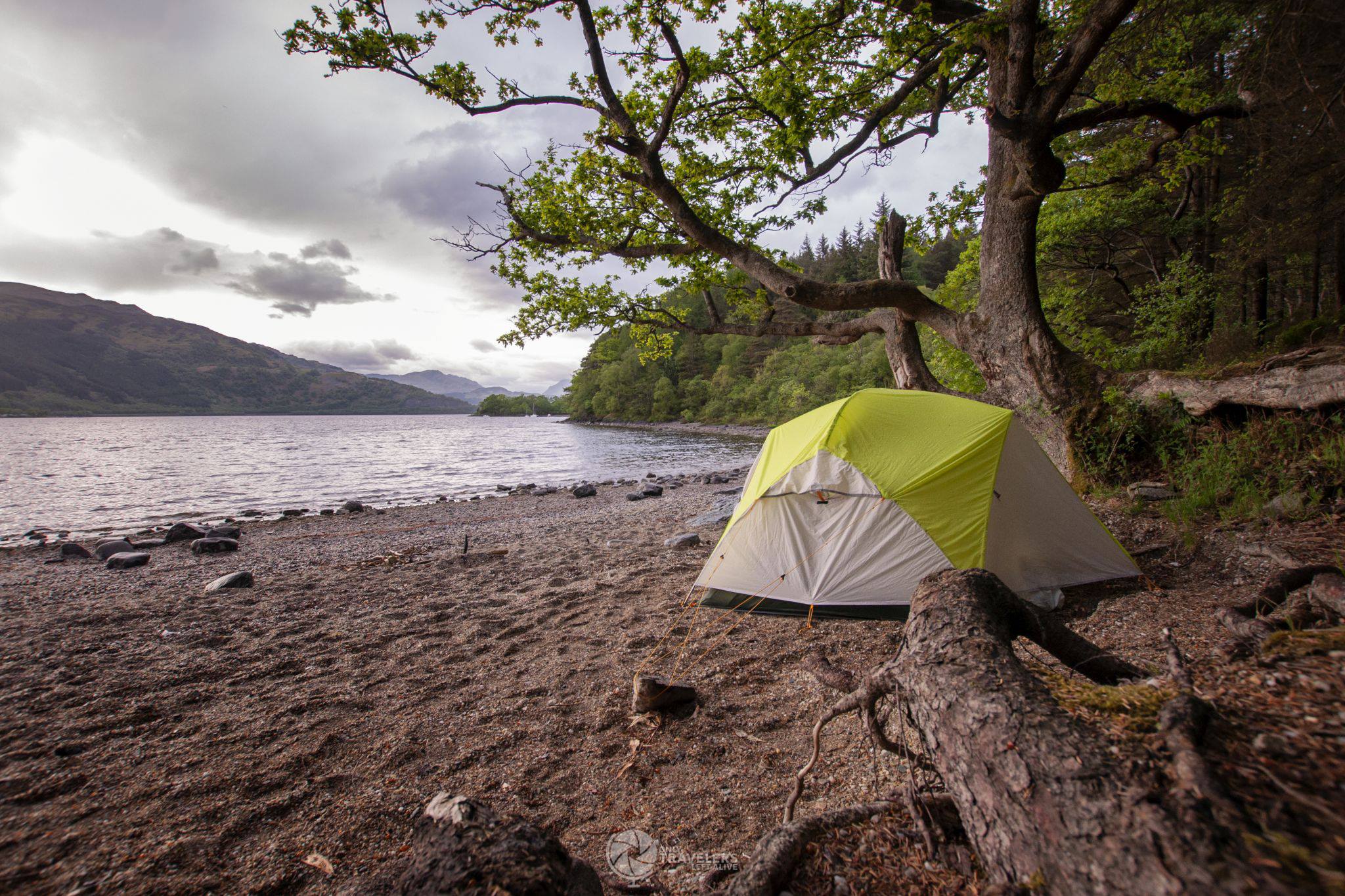Walking all day to spend a night under a canopy of stars provides an authentic Scottish experience when you’re journeying up the West Highland Way. While there are many campsite facilities dotted along the route, wild camping is permitted under the Scottish Outdoor Access Code.
Wild camping is a form of lightweight camping, often only staying in any one place for short periods. Please be respectful of the local people and land managers by not camping in enclosed fields where crops or farm animals reside. It’s also advised to avoid camping near buildings, roads and historic structures also. When camping, ensure you gather all your belongings and litter, leaving no trace of your stay behind — this includes removing traces of your tent pitch and any open fires.
Please also note that within the Loch Lomond & The Trossachs National Park, camping byelaws operate between March and September. For further information on your access rights in Scotland visit the Scottish Outdoor Access Code website.
Camping Equipment
Tent: When it comes to selecting a suitable tent for camping along the West Highland Way, you need to consider the openness and quick-changing weather conditions that the Highlands is famed for. Ensure your tent is of high quality so that it can withstand heavy rain, strong winds and damp conditions.
Sleeping Bag: Depending on when in the year you’re planning to walk the West Highland Way and how warm and cosy you like to be in bed, a three-season sleeping bag is suitable for most conditions you’ll face. However, it is possible to get away with a lighter sleeping bag for warmer weather periods. If you’re staying in a hostel, find out whether bedding is included; otherwise, you may need a sleeping bag.
Cooking Utensils: If you plan on cooking yourself a hot meal while camping, then there are various stoves available, using different fuels to choose from. Other useful cooking equipment includes forks, knives, cups, plates and pans. Many outdoor retail outlets offer cooking bundles, which can be helpful and more cost-effective.
Lights: It’s a good idea to pack a decent light or torch with you for when you’re camping as it can get very dark in the more isolated areas of the West Highland Way, especially if it’s a cloudy night.
Clothing: As the sun goes down, the temperature goes down with it, so it’s advisable to pack additional layers for the evenings – hats, gloves and socks will help keep your extremities warm.
Waste bags: Leave no trace of your overnight stay by ensuring you have bags to collect your litter with. There are many recycling points along the route, so please carry your rubbish with you until you reach a designated area to dispose of it properly.
Trowel: Your waste is no exception either. Carry a small spade or trowel with you so that you can bury your poo!




